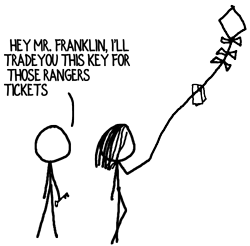Common wisdom says you should offer some sort of value to prospects when you reach out to them. What if that common wisdom is not only wrong, but backwards?

I’m sure you’ve seen or heard advice that consultants should only reach out to prospects when they have a compelling, useful tidbit to offer. For example, an article or white paper, your new book, an introduction to a sought-after peer, or insights from a project you conducted recently. (Alternatively, in case you have me on your outreach list, useful tidbits include boxes of chocolate, New York Rangers tickets or a 2015 V12 Ferrari FF.)
You know the script: “Hi Bob. I thought you’d be interested in some findings from a project we just completed with another company in your industry.” How many times have you tried something like that? How often has it worked?
The surprising truth is the “offer value when you call” approach is like fur on the outside of a coat. Logical, but actually more effective when it’s inverted.
Rather than reaching out when you have something, reach out when you want something. Specifically, advice and insight. Which we all need constantly. This script sounds like: “Hi Bob. I was looking for a bit of insight on the latest trends in neurological meters and you immediately came to mind as the right person to talk to. Could I pick your brain for about two minutes?” I call this Seduction by Solicitation, because it creates or stimulates a warm relationship by requesting a favor.
This approach is a variation on the phenomenon noted by Ben Franklin in his autobiography: “He that has once done you a kindness will be more ready to do you another, than he whom you yourself have obliged.” The idea is that if you do a favor for Josie (e.g., offer a copy of your book) and ask for a favor from MeiLi (e.g., seek advice), MeiLi is more likely than Josie to consent to a larger request, such as engaging in a discussion of how you can work together. (The exception, of course, is if you offer me Josie the Ferrari or seats at the Stanley Cup finals.)

At first blush, this doesn’t appear to comport with the six principles of influence fabulously outlined by Robert Cialdini. After all, the number one principle of Reciprocity suggests that if we want MeiLi to do us a good turn (listen to our offerings) we first need to bestow some useful token on her (article, book, etc.).
Delve deeper, though, because Reciprocity works in reverse. If we ask MeiLi for a small favor such as her advice, then she feels entitled to ask a favor of us. That’s reciprocity, and that’s exactly what we want! When she’s asking us to engage, cultivate the relationship and show value, we’re sitting pretty. Better yet, we know MeiLi will appreciate the offering she requested; a wholly different proposition than the unsolicited article, book or advice we were foisting on her.
I built my Rolodex of CEO contacts using this approach. When I started out, there was no way the CEOs of $1+ billion companies were going to take my call. Unless, it turned out, I had an intriguing need for advice. Starting with just two CEO contacts and a simple request for insights I built relationships with just shy of 70 large-company CEOs in about three months.
The table below shows the advantages of asking for help rather than offering value when approaching prospects.
| Offer Value | Request Help |
|---|---|
| Offering is needed/valued by small percentage of contacts | Virtually 100% can help |
| Only works when you have something to offer | Always works because you always need advice and insights |
| Reciprocity feels like obligation | Reciprocity feels like opportunity |
| Business transaction; doesn’t foster “Like” | Personal transaction; fosters “Like” & nurtures relationship |
| Requires confidence in offering | Requires willingness to ask and learn |
Since you don’t need to develop a new, high-value morsel to Seduce by Solicitation, there’s no reason to wait. Jump all over it by requesting help from your prospects today. You already know where to send the leftover Rangers tickets and the keys to the Ferrari.
Have you tried the approach I’ve outlined either purposely or inadvertently? If so, what were the results? Share an example in the comments selection below so other consultants can learn from your experience.
Text and images are © 2024 David A. Fields, all rights reserved.

 David A. Fields Consulting Group
David A. Fields Consulting Group 

Another truly insightful post, David. Thank you!
You’re welcome, Sean. We can both be grateful to Ben Franklin for HIS insight on asking rather than giving. (Come to think of it, a moment of thanks is due to Ben for quite a lot of things.)
I think there is some merit in this reversal (“obversal”??) of the reciprocity rule. You might very well get some response along the lines of ” nice to hear from you. you might find xyz to be of help. Let him know I directed you to him or it. Good luck to you.”
What’s missing from a lot of these outreach (should we call them “upreach”?) attempts is acknowledgement of what I’d call the “good sport” or “good deed”, maybe even good Samaritan reflex on the part of the respondents. The fair minded ones know it’s almost become a normative value to network and connect and collect people and names to tuck away for a rainy day. They may even take pre-arranged calls or a meet up or lunch in the name of talking to good people out there. But no, that does not automatically constitute additional “eyes on the street” for you for opportunities as many coaches suggest.They’ve got other top of mind priorities from day to day. Dream on.
Now, in the case of that good Samaritan and some rare other individuals we may connect with in professional networks he did go above and beyond even though he wore the wrong t-shirt (a rival or hostile group) and broke protocol (contact with a bleeding victim was a no-no under old Jewish law), but did he oversee the guy’s rehab or introduce him to trusted travel guides and benefactors from then on? No mention, pretty doubtful, but maybe as this article suggests he might have continued to offer advice on navigating roads safely if contacted. That could at least offer our wayfarer or consultant enough insight to make his way more safely and effectively through obstacles. There is definitely value in that even if it doesn’t land us at the doorstep of our next client.
The “Good Samaritan reflex” is an interesting take on the idea of asking for- rather than offering value. Many (if not most) people genuinely enjoy helping others. The experience of being of service is its own reward. As a result I have found that there’s much more power in this approach than simply getting a few referrals. Try it. I look forward to hearing how it works for you.
Thank you, David. The timing is perfect, so I appreciate you writing that post just for me. – Rick
You’re welcome, Rick. I’m glad this was the right information at the right time. Let me know how you’re able to put it to use and how it works out.
Spot on, David. Have been using this approach for years to great success. However, I would caveat that it works best, perhaps only, when there is already some connection or relationship in place. If I reach out to my LinkedIn contacts and ask them if they know of any companies that need consulting support, I get at least an 80% response rate. May not be an actual opportunity, but at least it’s a positive response. And just by doing that, you gain a secondary benefit of keeping the relationship alive with another touch point.
Mike, your comment is very helpful because it calls attention to a core element of this approach that I left out of the original approach for the sake of brevity.
When you appeal to someone for help, what makes it work is the personal nature of the request in a way that engenders a boost of pride and self-worth in the recipient. A hint of sincere flattery, for instance, is part of the script. Without that, you’re just making a generic ask that seems wholly self-serving. And that, as you point out, certainly works poorly if there’s no pre-existing connection. (It’s not a highly repeatable approach even when you do have a connection.)
The more personal, tailored request I’m suggesting is highly effective with outreach to people entirely new to you. Of course, it also applies to your current network.
Interesting and makes logical sense–Can you put this kind of request in a newsletter? Would you also have to provide something for the reader too or just an interesting article to present the question? My client base are trial attorneys who love to provide advice but are used to either getting paid for it or sharing with their colleagues, of which I am one…however, they have the “what’s in it for me attitude” but also the “That was my idea” ego need.
What do you advise regarding use of newsletter and/ or announce solicitation???
Great questions, Linda! Check out my reply to Mike B. because it applies to your newsletter question. Without the personal appeal, this approach loses much of its power.
Separately, attorneys, like consultants, are paid for giving advice. Therefore, your solicitation can’t be for the type of advice they’d typically get paid to dispense. For example, I wouldn’t ask an attorney, “Do you have any insights on protecting Intellectual Property?” Of course she has insights… and she deserves to be paid for her experience and knowledge. On the other hand, I might ask an attorney, “Do you think attorneys look at their IP differently from physicians, CPAs or other professionals?” That’s not a legal question and it allows the attorney to provide value even though she’s not talking about her area of expertise.
If that doesn’t answer your question or you need clarification, please ask again!